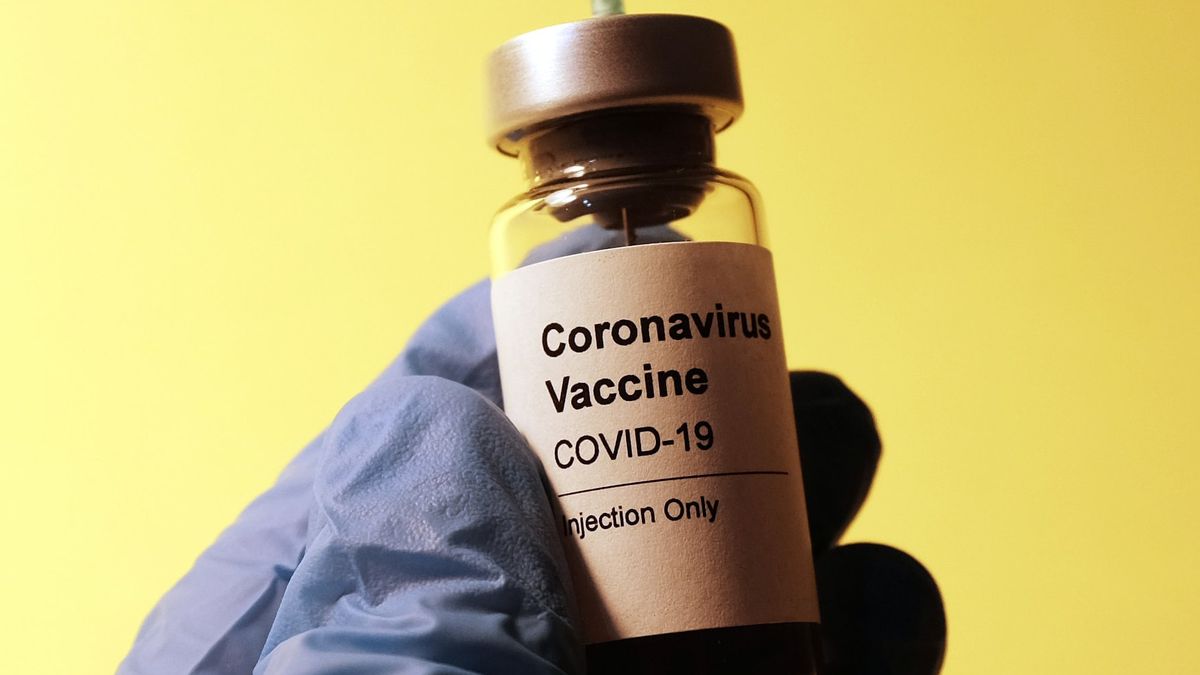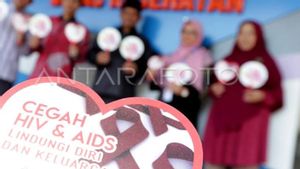JAKARTA - The Mutual Cooperation Vaccination Program continues to be a polemic. A number of parties have urged that the paid COVID-19 vaccination scheme be canceled, although its implementation is currently being postponed.
One of these pressures came from Indonesia Corruption Watch (ICW). ICW researcher Egi Primayogha assesses that the program has the potential to cause serious problems if it continues.
"With the Gotong Royong Vaccine policy, ICW noted several potential serious problems," said Egi in a written statement to reporters quoted on Wednesday, July 14.
The first potential problem, the dual track policy or free and paid for goods sought by the public such as the COVID-19 vaccine, will give birth to deviant practices. This practice can occur in the form of smuggling or illegal transfer of goods that were previously free to paid.
This can happen because of the motivation to make a profit. Moreover, the rules regarding this paid vaccine have been regulated by the state in the form of a Decree of the Minister of Health.
So even though the supplier is PT Kimia Farma (Persero) Tbk, with a weak supervision system, the gap for deviations will remain open. "This (can, ed) make the mass vaccination target quickly hampered and make handling the COVID-19 outbreak difficult," said Egi.
Second, regarding the disclosure of the acquisition price of the vaccine. He said the price of the Sinopharm vaccine from its producer in the United Arab Emirates used in the Mutual Cooperation Vaccine program was never disclosed to the public.
The government, said Egi, did indeed disclose information regarding the price margin and the maximum profit limit from the paid vaccine through Minister of Health Regulation No. 19 of 2021.
However, the context of this openness still feels artificial because the public needs to know how much profit the importers and implementers of paid vaccines get. The reason is that this vaccine is a rare item that must be procured by the state.
The next problem is the dual role of business entities and monopolies for economic gain. Regarding dual roles, ICW assessed that this could affect business entities because they could shift their focus from public health services to the motivation to benefit from paid vaccine programs.
This is because they are not only business actors but also paid vaccine providers. This will certainly add to the pressure on the administration of vaccines.
Meanwhile, for the monopoly of profits, the government is considered to have given a blank check to the implementing SOEs to get a profit margin without going through competition.
In fact, this state-owned enterprise is not sterile from governance issues, including how the patronage relationship between the state elite and the state-owned company is. This is what then opens the opportunity for the hidden practice of making SOEs as cashiers for politicians.
Next, ICW also highlighted various problems that befell Kimia Farma as a paid vaccine service provider. Egi said, so many problems befell this company in the midst of the COVID-19 pandemic.
Including when a subsidiary of this state-owned company, PT Kimia Farma Diagnostika, was involved in the case of circulating fake antigens at Kualanamu Airport, Medan.
Then, this paid vaccination is also considered to be able to benefit other parties. ICW roughly calculates that Kimia Farma will be the state-owned company that will benefit the most because from this program it can earn a profit of up to Rp. 17.2 trillion if there are 172.61 million doses of vaccine in circulation.
This figure is based on the Decree of the Minister of Health Number HK.01.07/MENKES/4643/2021 which the purchase price for the vaccine produced by Sinopharm is Rp. 321,660 per dose and the service tariff is Rp. 117,910 per dose. With two doses, the buyer must pay Rp. 879,140.
"If the sale of two doses of vaccine makes a profit of Rp. 100,000, then the profit will be Rp. 17.2 trillion," said Egi.
In addition, private companies will also benefit because they can hand over vaccination obligations to individuals or their respective workers.
The last problem is related to policy corruption in the implementation of vaccination. Moreover, since the beginning the COVID-19 vaccine has been targeted to become a business area.
Bearing in mind, the discourse of paid vaccination is not the only time this has been heard but has also appeared at the end of 2020. "However, due to widespread rejection, the government decided to provide free vaccines to all citizens. The decision then slowly changed," said Egi.
In addition, the ministerial regulations related to the implementation of this vaccination have often changed even three times since December 2020, namely Permenkes No. 10/2021, Permenkes No. 18/2021, and Permenkes No. 19/2021.
This inconsistency then indicates a business interest in the implementation of this vaccination program. "It is suspected that there is a rent-seeking practice in this case," said Egi.
As a result, the state is hijacked by business interests and this rent-seeking practice is manifested in the form of public policy.
With the various problems explained by Egi, ICW then asked for this paid vaccine policy not only to be postponed. "The paid vaccine policy must be canceled immediately," he concluded.
The English, Chinese, Japanese, Arabic, and French versions are automatically generated by the AI. So there may still be inaccuracies in translating, please always see Indonesian as our main language. (system supported by DigitalSiber.id)









